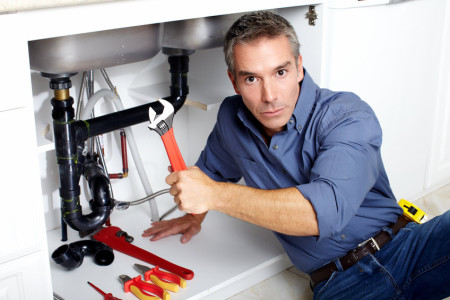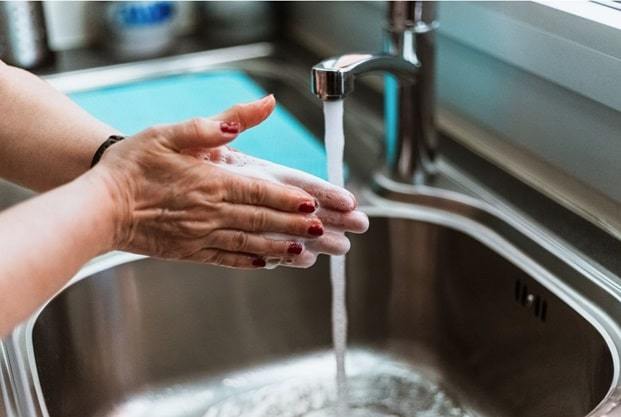Effective Solutions for Pipe Issues: Crucial Steps to Take Until Support Arrives
Effective Solutions for Pipe Issues: Crucial Steps to Take Until Support Arrives
Blog Article
What are your ideas regarding Plumbing Emergencies: Tips on What To Do Before?

Plumbing emergency situations can strike any time, creating stress and anxiety and prospective damage to your home. Whether it's a burst pipe, a clogged drainpipe, or a leaking faucet, knowing just how to take care of the circumstance until a professional plumber gets here can save you from additional problems. This short article provides essential emergency plumbing pointers to aid you alleviate damage and reclaim control throughout a plumbing dilemma.
Turn Off the Water
The very first step in any type of plumbing emergency is to shut down the water system. For localized issues, such as a dripping tap or toilet, turn off the shutoff near the component. When it comes to a major leakage or ruptured pipe, situate your home's primary water shut-off valve and turn it off instantly. Knowing the place of these valves ahead of time can save useful time during an emergency situation.
Address Little Leakages with Momentary Fixes
Tiny leaks can quickly end up being significant troubles if left untreated. Make use of these momentary fixes till professional assistance arrives:
While these fixes aren't long-term, they can help reduce water loss and damages.
Unclog Drains Securely
A blocked drainpipe can be a frustrating and untidy issue. Right here's just how to tackle it:
If these methods don't work, prevent making use of too much force, as it may aggravate the clog.
Manage Overflowing Toilets
An overflowing bathroom can create prompt chaos. Right here's what you must do:
Shut down Your Hot Water Heater
In particular emergency situations, such as a ruptured pipeline, it's wise to shut off your water heater. This prevents overheating or damage to the unit when water stops streaming. Shut off the power supply to the water heater (electric or gas) and let it cool down to stay clear of possible threats.
Momentarily Quit a Ruptured Pipe
A burst pipeline can bring about substantial water damages in mins. To alleviate the problem:
Call an expert plumbing instantly to address the trouble completely.
Deal With Frozen Pipes Very Carefully
In chillier climates, frozen pipelines are a typical emergency. If you suspect an icy pipe:
Prevent Additional Damage
Taking fast action to decrease damage can save you money and time over time. Below's exactly how:
. Have an Emergency Plumbing Package
Prepare a basic plumbing emergency situation set to take care of minor problems properly. Your kit must consist of:
Having these tools accessible can make a significant distinction in your ability to handle emergency situations.
Know When to Call a Professional.
While quick fixes can help briefly, certain pipes issues need instant specialist focus. Call a plumbing if:.
Without delay getting in touch with an expert makes sure the problem is settled appropriately and prevents further complications.
Conclusion.
Plumbing emergencies can be overwhelming, however with the best understanding and devices, you can take care of the situation effectively up until assistance gets here. By turning off the water supply, dealing with small leaks, and using short-term repairs, you can lessen damages and maintain your home safe. Bear in mind, these pointers are temporary solutions; always speak with a certified plumbing to take care of the source of the issue. Prep work and fast reasoning are your finest allies in any type of plumbing emergency.
8 Helpful Tips for Managing Plumbing Emergencies at Home
If your plumbing system hasn’t failed once, wait for it because almost everyone has a story to tell. Sometimes, it could be simple emergencies such as a leaking pipe, a blocked cistern, or even a big burst pipe. In situations like this, you need to have some handy tips to save you some money and from possible damages.
Take care of minor issues early.
Sometimes, you could have avoided an emergency by taking proactive measures while it was still early. Some major plumbing emergencies can be a result of an ignored minor issue. We recommend that you have items like plumbing tapes and other related items. A plumbing tape can allow you to manage minor leaks before the plumber arrives.
Cut off the water supply.
This tip is essential in almost any type of leakage problem. For problems like minor leakages in the toilet or kitchen, turn off the supply that takes water to the affected pipes. If the leakage is a major pipe, you must shut off the supply valve to the entire building. This will help you avoid flooding your home and neighbors if you share a flat.
Know your plumbing system
Folks typically move into a new apartment without understanding the water supply around the building. This can prove disastrous if a water emergency arises and the plumber is far away. The previous tip will prove useless if you don’t practice this one. More importantly, know where your water shut-off valve is located – you’ll need that knowledge to prevent potential home floods.
Have some common handy tools
There are lots of plumbing emergencies that you can handle without hiring a plumber. That’s why you must keep some tools available always. Some tools that you can use to fix simple plumbing emergencies easily include plumbing tapes, screwdrivers, thread seal tapes, plungers, pliers, tape measures, and rubber gloves.
Insulate your pipes from cold
You’ll save yourself from many plumbing expenses if you protect your water pipes from the cold. This is because of the harmful effects that cold weather can have on your pipes. During winter, your pipes can burst from being overly expected to freezing temperatures. So, make sure insulators are there to keep the pipes working correctly.
Avoid practices that will clog your toilet.
Many people indulge in practices that can damage the plumbing system of the entire building. One of these is when they use their toilet to dispose-off garbage. They flush all kinds of things, such as paper towels, bandages, hairs, female sanitary products, etc., down the toilet. This will block your toilet in the long run, incurring unnecessary expenditures. Dump such waste in the trash instead.
Check your dials regularly.
Sometimes, there could be leakages in your home without noticing them in time. So, constantly monitor your water meter dial. If the dial is reading when there is nobody using water, this is an indicator that there is leaking. Check for leaks immediately. Call a plumber as soon as possible if you can’t find any.
https://www.constructionplacements.com/8-helpful-tips-for-managing-plumbing-emergencies-at-home/

I found that blog posting about What to Do During a Plumbing Emergency when doing a lookup on the internet. In case you appreciated our article if you please don't forget to share it. I am grateful for your time. Please visit our website back soon.
Call Report this page